All content
This is a brief re-examination of Thomas’ famous declaration “My Lord and my God” in John 20:28. I looked at this some years ago, noting the common argument that the wording of the confession reflects the “custom,” recorded in Suetonius and Dio… ( | 7 comments)
Probably, for most people interested in biblical studies, “historicism” is a bad word, associated either with a positivist historical-critical methodology that hammers the theological life out of a text or with a certain mode of nineteenth century… ( | 4 comments)
I did a couple of podcast episodes recently with David Capes for The Stone Chapel Podcasts, talking about my book In the Form of a God: The Pre-existence of the Exalted Christ in Paul.
Episode 140 “In the Form of A God” with Andrew… ()
It is easy to visualise the traditional interpretation of Philippians 2:6-11 as a downward parabola or u-bend: Christ existed in heaven from eternity “in the form of God”; he descended into the world, becoming man and dying on the cross; then he is… ( | 13 comments)
This is a dull, and frankly unnecessary, technical note on the genitive construction with a preposition en morphēi theou (ἐν μορφῇ θεοῦ) in Philippians 2:6. I’ve had to look at this a bit more closely following a rather disjointed… ( | 12 comments)
John Baumberger has a question about my translation of en morphē theou in Philippians 2:6 as “in the form of a god.” He takes issue with the indefinite construction on a couple of grounds:
1. The word theos ‘without the… ( | 5 comments)
The famous passage about Christ in Philippians 2:6-11 is usually described as a “hymn,” and is usually taken to celebrate the inverted parabola of Christ’s descent from heaven, his incarnation as man, the nadir of his death on the cross, followed by… ( | 11 comments)
Just for the sake of completeness, here is one final visual representation of the two-part significance of Easter. It’s now getting a bit overloaded, I know—two storylines, four landing points, and an unexpected back-reference to the flood; but I… ()
This is a brief addendum to the earlier post this week about the two meanings of Easter. A bit of an exchange on Facebook suggested to me that modern theologies of Easter are a striking inversion of what we find in the New Testament. I have… ()
We think of Easter week as one story: entry into Jerusalem on Palm Sunday, Last Supper, arrest and trial, crucifixion, and resurrection. Liturgical performance, with a convenient hiatus between Palm Sunday and the long East weekend, reinforces the… ()
The current issue of the Catholic Biblical Quarterly includes my article “When the Fullness of the Time Came: Apocalyptic and Narrative Context in Galatians.” It’s only available to subscribers for the time being—and, of course, in… ( | 2 comments)
I was almost persuaded the other night, sitting outside a pub in Glasgow with some Communitas friends, that the story about Jesus inviting himself into the house of Zacchaeus has been widely misunderstood. The suggestion was that Zacchaeus was all… ()
Thanks to James McGrath, I’ve been fretting a bit more over the “fishers of people” saying in Mark 1:17 and Matthew 4:19. In his commentary, Hagner decides in the end that it “refers in a general way to the work of the new disciples, who are now to… ( | 4 comments)
I was asked whether there is any connection between the condemnation of lust in Matthew 5:27-30 and what is said about marriage in Jeremiah 16. I suggested in the last post that the sayings in the Sermon on the Mount about being thrown into Gehenna… ( | 2 comments)
Ron got in touch to say that he’s persuaded by the argument that Gehenna in Matthew stands for a historical judgment. He can see how this makes good sense of the sayings about anger, hypocrisy, retaliation, and love of enemies, which presuppose a… ()
John Walton must know a lot more about the Tower of Babel story in Genesis 11:1-9 than I do—it was the subject of his doctoral dissertation, and, of course, he is an eminent Old Testament scholar. Still, I am not persuaded by his argument in a… ( | 2 comments)
I did an interview last week with John Morehead, who directs Multifaith Matters. His organisation aims to provide support for individuals, churches, and organisations doing mission in a pluralistic religious context, so we talked about “narrative-… ()
A friend rang this morning wanting to know whether the thousands who died, and no doubt are still dying, in the earthquake that devastated the region around Gaziantep and Aleppo last week are now continuing to suffer in some far worse post mortem… ( | 3 comments)
I have a lot of work to do on hermeneutics in the coming months. One of the books I am reading is Craig Bartholomew’s Introducing Biblical Hermeneutics: A Comprehensive Framework for Hearing God in Scripture (2015), which seems to be both a… ( | 2 comments)
This is an odd two-part post. I came across Cleanthes’ “Hymn to Zeus” in Mike Bird’s Jesus among the gods: Early Christology in the Greco-Roman World. It’s an outstanding early example (third century BC) of the pagan instinct to identify a… ( | 6 comments)

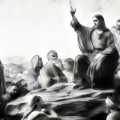
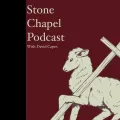
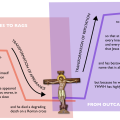


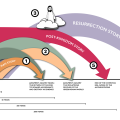


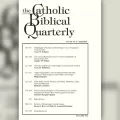







Recent discussion